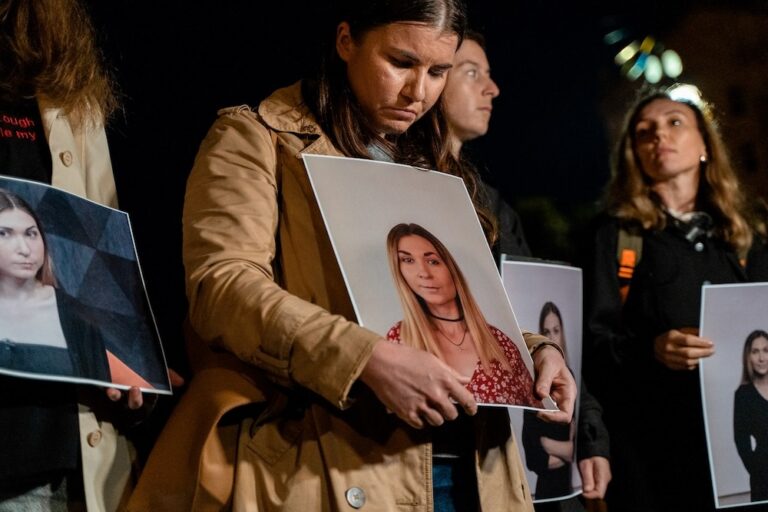Shortly before her death, Bella Ksalova told her colleagues that she was under surveillance.
(GDF/IFEX) – Bella Ksalova, 26, a correspondent for the Caucasian Knot news agency, was run over by a car near her house in Cherkessk at about 9:00 p.m. on July 25, 2010. According to the Karachai-Cherkess police, the journalist was crossing the street “in the wrong place”. Preliminary investigation shows the driver of the car that hit her, Arsen Abaikhanov, was sober and stayed at the scene of the accident. He was driving a service Volga belonging to RosPrirodNadzor [a federal agency which oversees the use of natural resources].
Ksalova was driven to the local clinic where she soon died of the injuries she sustained.
Sources say the journalist had a sharply critical pen and her writing often upset local authorities. The journalist and her relatives had been living under pressure for a long time, and Ksalova’s father was once attacked and beaten. She wrote about problems related to freedom of expression in Karachai-Cherkessia, provided coverage of extraordinary congresses, where the republic’s leadership was severely criticized, and had prepared a series of video reports describing various aspects of ordinary people’s lives. The series included footage from a rally in memory of physician Alamat Kecherukov that turned into a protest against President Ebzeyev, stories about Cherkess ethnicity, warnings about the proximity of the TB hospital in Cherkessk to social infrastructure facilities and about problems facing the residents of city hostels. Ksalova’s latest Caucasian Knot stories described constructive trends in the republic and measures to restore ethnic culture and traditions, such as revitalizing the Abazin language.
Shortly before her death, Bella Ksalova returned from a seminar in Moscow. She had repeatedly told her colleagues at Caucasian Knot she was under surveillance. One taxi driver had openly told her that secret agents had been watching her house from a car parked nearby. According to Ksalova, there were quite a few people in the republic who would have liked to see an end to her publications.


